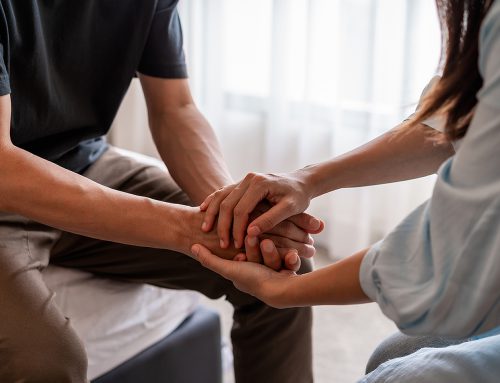What’s The Difference Between Anxiety And Depression?
Published May 20, 2023

Anxiety and depression are often included in the same sentence, but the effects of these two conditions on your mental and physical health are quite different.
Anxiety feels very real because it’s driven by emotion. You may experience physical symptoms, too, such as sweating or a rapid heartbeat. A normal reaction to stress, anxiety can alert us to real dangers, but generally it is a temporary condition that abates as one’s worries ease.
When a person’s worries become intrusive or ongoing, anxiety can become more debilitating, and over time can be indicative of an anxiety disorder. Common anxiety disorders include social anxiety disorder and separation anxiety disorder.
Although they can become chronic, anxiety disorders are treatable with behavioral therapy, and in some cases, medication.
Depression
Depression, on the other hand, is a state of sadness that lasts a long time and interferes with a person’s ability to function normally.
The statistics are startling: 1 in 6 adults will experience depression at some point in their life, says the Centers for Disease Control and Prevention. Depression can happen at any age or at any point in life. Common triggers for depression include major life changes, such as a death in the family or a divorce. Substance abuse (alcohol, for example, is a depressant), abuse or trauma can also be causes for depression.
Often a person experiencing depression will withdraw from doing activities they usually enjoy, or they’ll eat less and won’t take care of their physical appearance. They might not be sleeping well, or they may exhibit irritability or extreme fatigue. They might even express thoughts about self-harm or not wanting to live. If these symptoms last more than two weeks or indicate a change from how the person has acted in the past, it’s a good idea to seek the help of a mental health specialist. Like anxiety, depression is treatable with behavioral therapy and medication.
If you or someone you know is experiencing a mental health crisis, don’t wait to call the Suicide & Crisis Lifeline, 988.
Subscribe to our monthly emails for Your Well-Being! Get health and wellness tips, hospital news, staff spotlights, career opportunities, our cafe menu and more, sent right to your inbox!
DISCLAIMER: No content on this website, regardless of date, should be used as a substitute for direct medical advice from your primary care provider.



